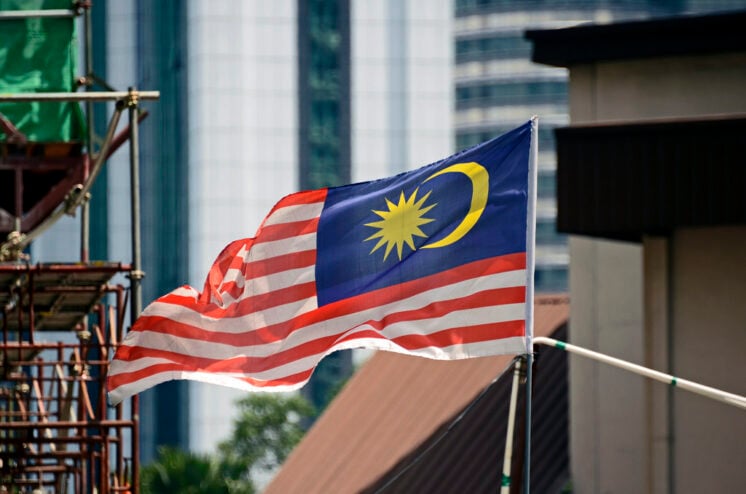The parliamentarian crossing over in February 2020 resulted in the new Perikatan Nasional (National Alliance) government. Since then, the Malaysian trade union community has become frustrated with the lack of progress of labor law reform. Both the Malaysian Trade Union Congress (MTUC) and the Labour Reform Coalition (LLRC) have presented their versions of the labor law proposal. However, the parliament keeps postponing to convene.
 Photo: "A Malaysian flag" by World Bank Photo Collection is licensed under CC BY-NC-ND 2.0
Photo: "A Malaysian flag" by World Bank Photo Collection is licensed under CC BY-NC-ND 2.0The stringent, colonially inherited labour laws favorable to owners of capital have suffocated the Malaysian trade unions. For example, electronic workers have been denied their right to register a national union of electronics workers, even until today.
The oppressive control of the labour movement and the fade-away of union militancy has caused the low labour income share. Malaysian labour income shares are 35.2 percent in 2017. The government aims to achieve an ambitious 48 percent of labour income share by 2030.
The low unionization rate and the covid-19 crisis have left the majority of workers unprotected. Workers lack a proper bargaining platform. Let alone, the government has allowed employers to negotiate with workers on wage reduction. The covid-19 pandemic shows the role of trade unions is even more important in defending workers’ rights.
Read more.











